When a news media company becomes radically politicised: Jimmy Lai and the Apple Daily saga
The high-profile trial of Apple Daily founder Jimmy Lai has been postponed, with some voices asserting that media freedom has not been respected. From his close observation of Apple Daily in his years as Zaobao's editor, Lim Jim Koon takes a clear-eyed look at Apple Daily. He says that having crossed the baseline of news media organisations and broken the law, it can no longer justify its actions with media freedom.
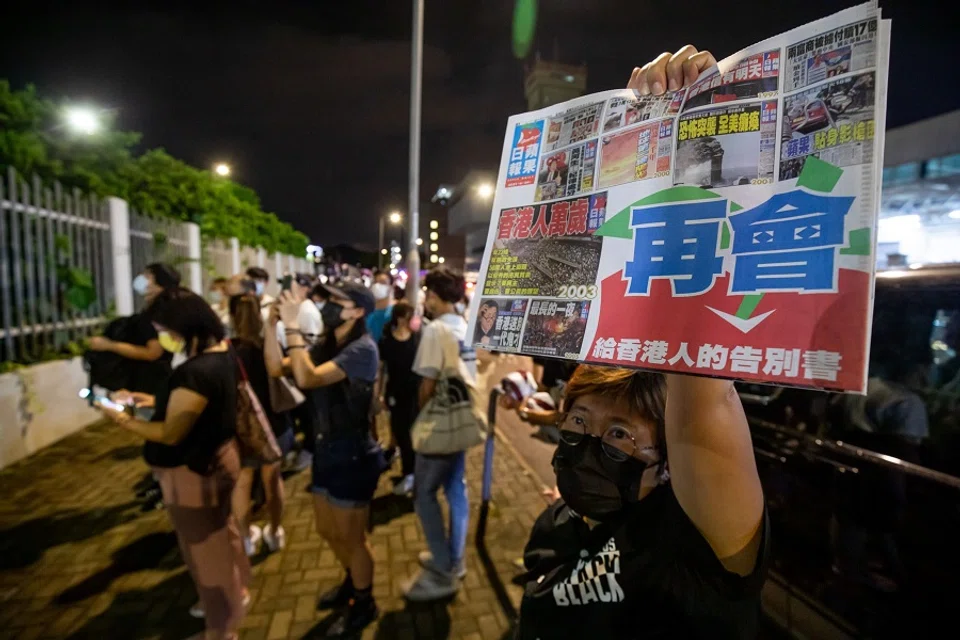
The trial of Hong Kong media mogul and founder of Apple Daily Jimmy Lai Chee-ying, who is alleged to have violated the Hong Kong national security law, was originally scheduled on 13 December. However, the trial is adjourned to next year as the question of whether a British barrister is allowed to defend Lai has to be decided through the legal interpretation by China's National People's Congress Standing Committee (NPCSC).
Regardless of the NPCSC's interpretation, the trial has already attracted international attention. Its verdict is certain to lead to great controversy, as can be seen from the US Department of State's condemnation that media freedom is not respected in the conviction of Lai of fraud by the Hong Kong District Court on 10 December.
The maverick who shaped Apple Daily's anti-CCP stance
Lai himself is a controversial figure, whose identity as a media professional has been disputed. Let us put this aside for the time being as we consider how he founded Apple Daily, a leading Hong Kong newspaper for 20 years, although some consider it to have sullied the media industry.
Prior to this, Lai had already founded Next Weekly, a gossip magazine that the ordinary Hong Kong citizens loved. In July 1994, about a year before the start of Apple Daily, Lai suddenly published an article entitled "An Open Letter to 'Turtle Egg' Li Peng" (the then Chinese premier) in an issue of Next Weekly, scolding Li and calling him a "turtle egg" (a derogatory name to call another person) more than 20 times!
The blatant political arrogance, possibly a deliberate pledge of allegiance to other powers that be, was indeed an eye-opener. It was therefore entirely unsurprising that Apple Daily, founded in the following year, positioned itself against the Chinese Communist Party (CCP) from the very outset.
Newspapers were generally priced at that time at HK$5 (about S$0.90) but Apple Daily was sold at HK$2 with a complimentary apple and shopping vouchers.
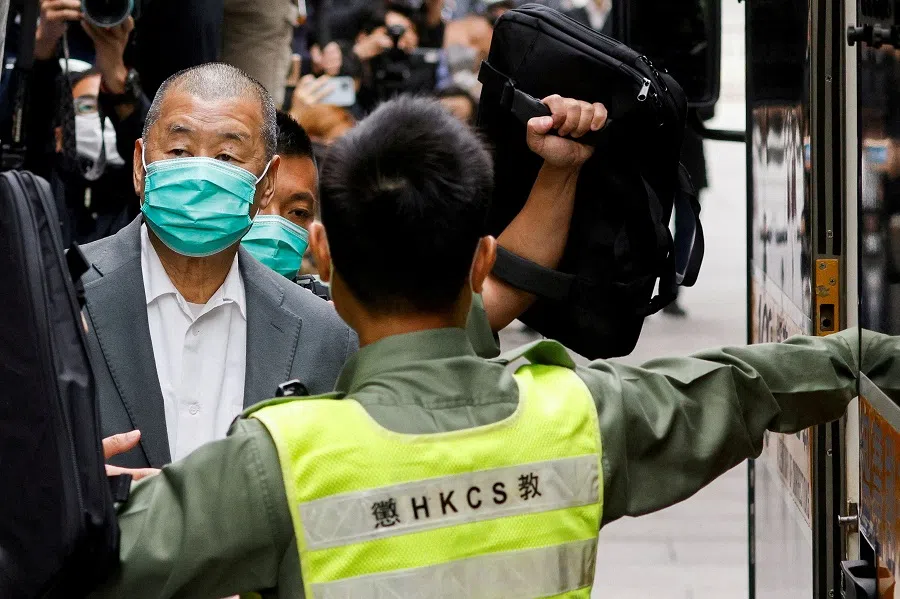
Lai is undeniably a genius businessman. The momentous start of Apple Daily on 20 June 1995 immediately caused an upheaval in the Hong Kong newspaper industry. First, it bit the bullet by adopting the strategy of competing on price. Newspapers were generally priced at that time at HK$5 (about S$0.90) but Apple Daily was sold at HK$2 with a complimentary apple and shopping vouchers.
In the intense and bloody price war in the subsequent months, the sales of Apple Daily soared while several newspapers closed, including Sing Tao Wan Pao, New Evening Post and Hong Kong United Daily News. Upon successfully gaining market share, Apple Daily restored its price to HK$5.
Lai's famous newspaper motto was to "give the readers what they want to read".
Going the populist route with a cultured mien
Apple Daily went on the offensive in delivering content with even fewer scruples, completely upending the Hong Kong news media ecosystem. Lai's famous newspaper motto was to "give the readers what they want to read". Under such a guiding ideology, it endeavoured to be sensational and delivered much gossipy, provocative, pornographic and violent content.
In the name of realistic reporting, it published embellished headlines with bloody and nude images aimed at provoking the readers' senses in a frenzy to "capture eyeballs". Under the pretext of the readers' right to know, it even published photographs of victims of traffic accidents or crimes, which infringed upon their privacy and completely ignored the feelings of these victims and their families.
Apple Daily employed a stable of paparazzi, who stalked stars and celebrities by stationing outside their apartments and restaurants for the opportunity to capture candid photographs of their private lives. The privacy violation satisfied the voyeuristic readers. Incredibly, Apple Daily even had an erotic edition that provided information such as a guide to prostitution services!
"The more erudite and critical Apple Daily's Sunday column 'Beneath The Apple Tree' is, the more it resembles a sinner making confessions in church on Sundays." - Perry Lam, a Yazhou Zhoukan columnist
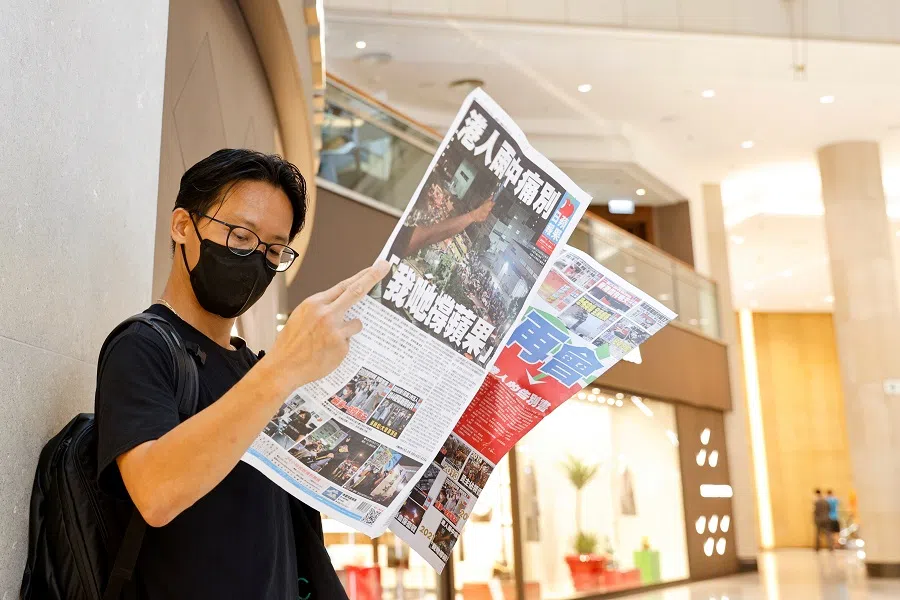
Of course, Apple Daily was not only all about crude rubbish. While selling sensational content, Lai also knew how to strike a balance using cultured writing. He spared no expense to invite scholars and famous persons to take up senior positions or write columns, often with annual salaries of millions of Hong Kong dollars. Putting them in the public eye, Lai dressed up and enhanced Apple Daily's image.
Perry Lam, a Yazhou Zhoukan columnist, once wrote that "Apple Daily had never been miserly with remuneration for articles and had countless famous writers, including the editor-in-chief Tung Chiao who is known for his elegant prose. However, such embellishments to Apple Daily's ideology and culture would not alter its essence ... The more erudite and critical Apple Daily's Sunday column 'Beneath The Apple Tree' is, the more it resembles a sinner making confessions in church on Sundays." This precisely hit the nail on the head!
In addition to enhancing its image through its supplementary sections, Apple Daily made every effort to beautify its layout design and paid great attention to its visuals. More importantly, it was Hong Kong's first full-colour newspaper, offering a brand new look to its readers and easily eclipsing many newspapers that were still printed in black and white then.
Thus, Apple Daily created a formula, comprising elements such as provocative content and images, photographs that invaded privacy, attractive layout and anti-CCP stance, and completely changed the Hong Kong newspaper industry's ecosystem. It influenced the remaining surviving newspapers to follow suit, resulting in the industry emulating its recipe.
Could Singapore's society ever be as laissez-faire as Hong Kong's? Could we really emulate Apple Daily's disruptive methods to gain market share?
A different milieu
The Apple Daily phenomenon also piqued the interest of overseas Chinese media, and some local media professionals were attracted by it and felt it necessary to learn from Apple Daily. However, during my time, I begged to differ. Could Singapore's society ever be as laissez-faire as Hong Kong's? Could we really emulate Apple Daily's disruptive methods to gain market share?
It is absolutely impossible for us to emulate the sensational content and photographs, inflammatory headlines, paparazzi with stalking cameras, secondary victimisation of the casualties of accidents and crimes, and the attitude of total disregard for society's morals and responsibilities. These would be disallowed by Singapore's government, rejected by the public and disdained by local journalists.
The popular evening newspapers like then Lianhe Wanbao and Shin Min Daily News that targeted ordinary citizens adhered to the principle of popular and not vulgar news, and would not plumb Apple Daily's depths, let alone Lianhe Zaobao.
Putting aside Singapore's shrinking Chinese-language ecosystem, which is immensely different from Hong Kong's, the increase in Apple Daily's circulation was clearly at the expense of the demise and decline of other newspapers.
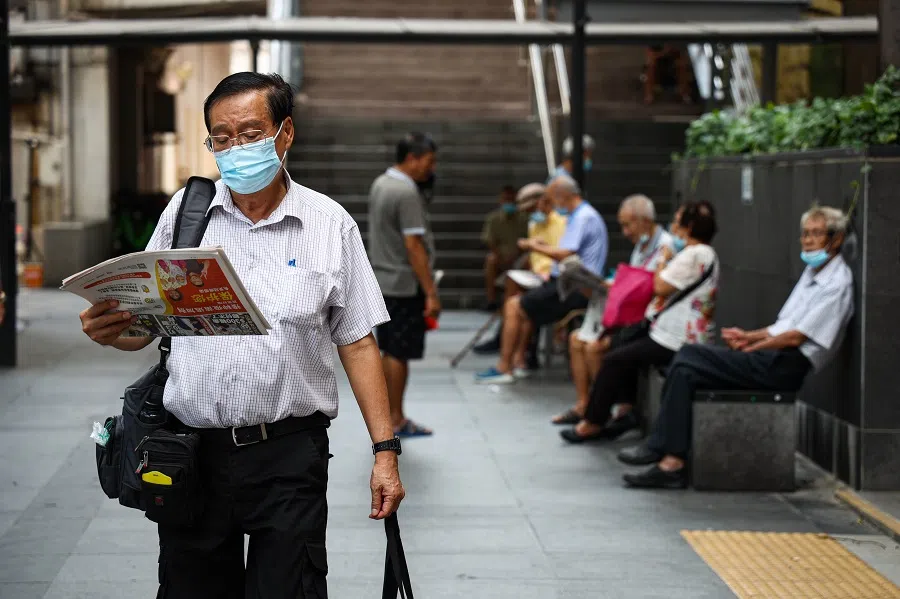
Even if we can entirely emulate Apple Daily, however unlikely, can the total readership of local Chinese newspapers really increase? Putting aside Singapore's shrinking Chinese-language ecosystem, which is immensely different from Hong Kong's, the increase in Apple Daily's circulation was clearly at the expense of the demise and decline of other newspapers.
Apple Daily was not the first to use eye-catching layouts and news visualisation, which were in fact pioneered by the renowned US full-colour national newspaper, USA Today. Founded in 1982, the circulation of USA Today was the second highest in the US in 1988. It even printed its international edition in Singapore in the mid-1980s.
At that time, television was the biggest competitor of newspapers. To compete for the target audience's attention, USA Today established its reader-friendly editorial policy, advocated visualisation and diagrammatic representation of news, and presented and interpreted news using simple and clear charts. Its coloured graphics were attractive and pleasing to the eye, and the cover images on its front page were meticulously selected, processed and presented like television pictures every day.
In fact, the local Chinese and English newspapers had already learnt from USA Today before Apple Daily came into being, and Lianhe Zaobao had put the concept of "friendly and easy to read" into practice and implemented it in its daily operations. Therefore, there was nothing to learn from Apple Daily in that regard.
A publication that did more harm than good?
I was negative towards Apple Daily right from the start, and openly criticised it at the 4th Conference On Chinese Media And Its Cultural Civilisation Within A Shared Mankind Community held at the Chinese University of Hong Kong on 24 September 2005.
I delivered a speech entitled "Seeking the Pillar of Strength for Chinese Newspapers in the Midst of Vicious Competition in the Newspaper Industry". I unequivocally said that "judging from the fierce competition, the Hong Kong market in the past ten years can be described as 'tragic'. The rise of Apple Daily has brought about a hurricane of tabloid ideology and completely changed the ecosystem of Hong Kong's newspaper industry. In a situation that is worrisome for the Hong Kong intelligentsia, newspapers that are gossipy, provocative and sensational have overwhelmed many that are serious, conservative and traditional. "
... "its unscrupulous methods have established a hegemony of the cultures of paparazzi, celebrity, anti-intellectual and consumerism in Hong Kong, directly contributing to endless dumbing down on a path of no return." - Perry Lam, cultural commentator
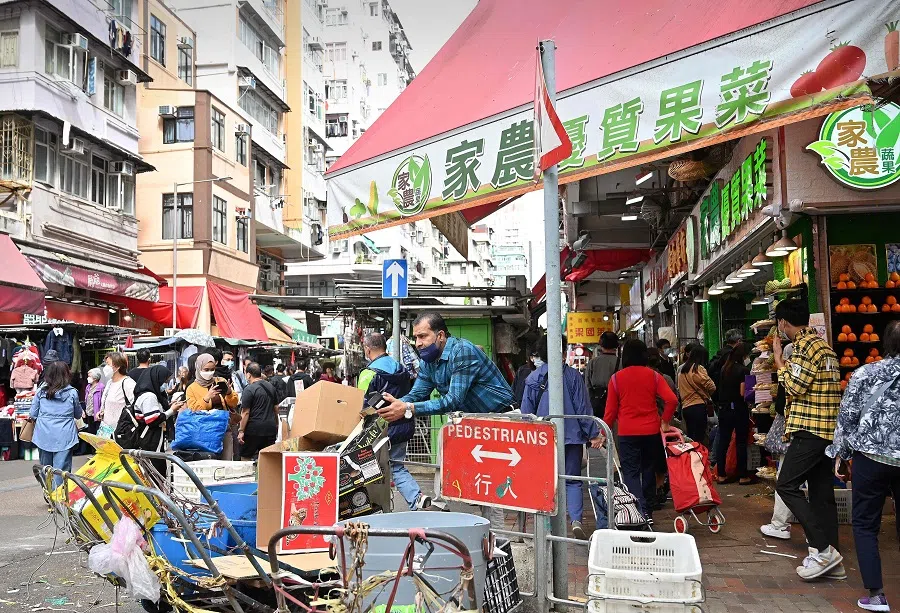
In a commentary published in Yazhou Zhoukan in June this year, Mr Mathias Woo remarked that "prior to the Apple Daily era, there was much diversity in Hong Kong newspapers and magazines as well as their readership ... that built a pluralistic cultural spirit. The emergence of Apple Daily has completely altered the nature of the spirit and culture of the Hong Kong people."
Perry Lam, another commentator, also mentioned in an article in Yazhou Zhoukan in September which discussed the impact of ten years of Apple Daily that "its unscrupulous methods have established a hegemony of the cultures of paparazzi, celebrity, anti-intellectual and consumerism in Hong Kong, directly contributing to endless dumbing down on a path of no return".
Woo and Lam, well-known authors and cultural commentators in Hong Kong, are deeply saddened by the cultural populism, the brain drain of journalism professionals and the withering human and cultural spirit caused by Apple Daily.
... Apple Daily's choice to be directly involved in politics truly altered its character and sent it to the abyss.
Entering politics, leaving journalism
Indeed, Apple Daily is an appalling newspaper to many Hong Kong intellectuals, although this does not change its nature as a news media company no matter how awful it is. However, Apple Daily's choice to be directly involved in politics truly altered its character and sent it to the abyss. In this regard, it went far beyond the boundaries of the so-called advocacy journalism or activist journalism, which even the West does not approve of.
Apple Daily's involvement in politics was extremely radical, with countless examples as follows. It directly interfered with politics in as early as 2003, with direct action to oppose the Hong Kong government's legislative proposal for Article 23 of the Basic Law. On 1 July 2003, its front page headline included slogans such as "Take to the streets, see you there" and "No to Tung Chee-hwa". It also printed protest posters in advance to incite 500,000 Hong Kong people to march on the streets.
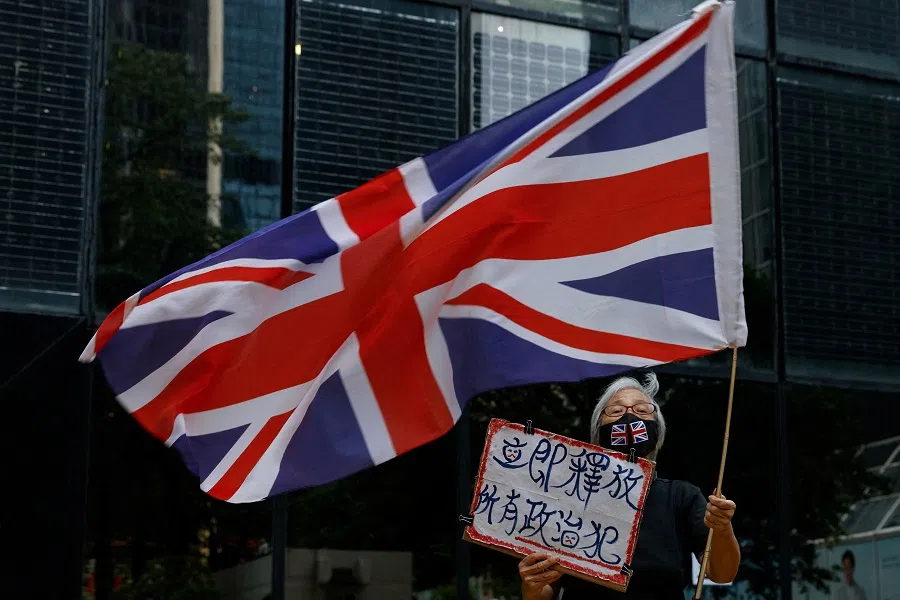
Emboldened by its first "success", Apple Daily persisted with its tried and tested incendiary actions in the Hong Kong Umbrella Movement from 2006 to 2014. Lai was alleged to have financially supported the pan-democracy camp and many pro-democracy movements. As Next Digital Limited had for years been unable to break even, some have openly questioned whether the financial support came from foreign powers.
Apple Daily's radical political interference climaxed in 2019 in the proposed legislative amendment bill on extradition. In addition to using its front pages to call on readers to march in protest, it continuously published over a hundred articles urging other nations to sanction or take other hostile actions against Hong Kong and China.
Worse, after the demonstrations broke out, Lai visited US Vice-President Mike Pence and Secretary of State Mike Pompeo, publicly declaring that Hong Kong was "... fighting for the shared values of the US ... [and] fighting their war in the enemy camp" in a proxy battle.
It is little wonder that Leung Chun-ying, former Hong Kong chief executive, openly questioned whether Apple Daily was a genuine news organisation after Lai had met with US politicians to seek sanctions against Hong Kong and Apple Daily had disseminated protest slogans whenever there were large-scale anti-government activities.
Apple Daily has absolutely overstepped the baseline of news media organisations and broke the law, so it can no longer justify its actions with media freedom.
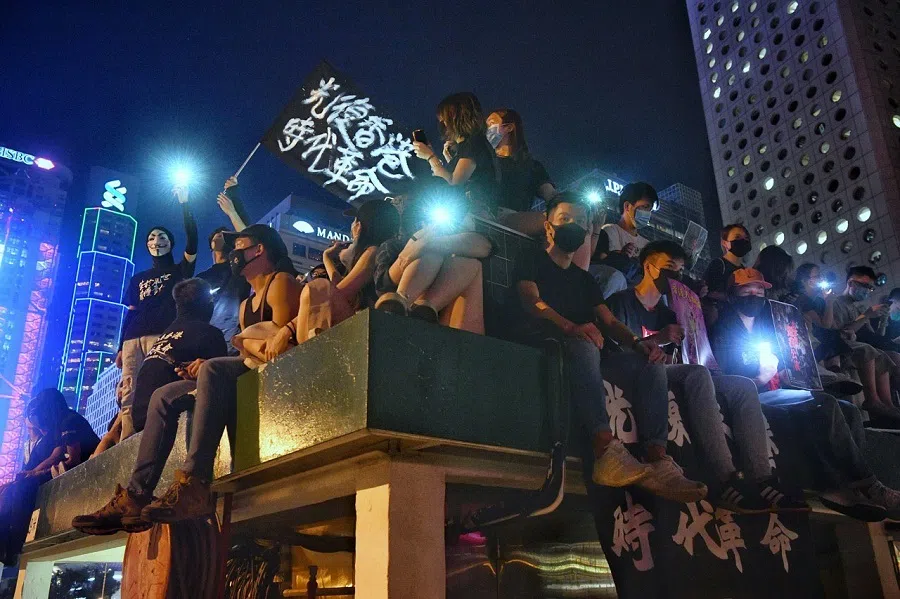
On 13 July 2021, Yu Pun-hoi, a well-known media personality in Hong Kong, also publicly questioned, "Can the Apple Daily's management shirk its responsibility when the tabloid's editorials audaciously urged Western nations to sanction Hong Kong and China? Can these actions be non-political, un-related to the national security law, and protected by media freedom? When these occur time and again, can Apple Daily still be considered a news media organisation? Is Lai a mere businessman or member of the press?"
These are critical questions that Apple Daily and Lai cannot evade.
Having turned into a radical political organisation, Apple Daily must face the consequences of its political actions. On 10 August 2020, Lai was finally arrested under Hong Kong's national security law. The Apple Daily headquarters was also searched and its assets were frozen for alleged violations of the national security law. The tabloid ceased operations on 24 June 2021.
Apple Daily has absolutely overstepped the baseline of news media organisations and broke the law, so it can no longer justify its actions with media freedom. Even when facts speak louder than words, the jury of Western opinion has already ruled that the political cases of Lai and Apple Daily are a trial of media freedom. US President Joe Biden has declared that the cessation of Apple Daily is "a sad day for media freedom".
What else is new? The saga continues.
This article was first published in Lianhe Zaobao as ""苹果"是怎样烂掉的--当新闻媒体变身激进政治机构".
Related: Beijing's message behind the closure of Hong Kong's Apple Daily | As HK pro-democracy media exits the scene, mainland media swoops in | Stand News closure and the vanishing voice of HK's pan-democrats | Beijing's 'cleansing' of Hong Kong industries: Who will be the next target? | To leave or not to leave: The cry of Hong Kong's youth | Governing Hong Kong: Beijing needs to tread carefully with the national security law





